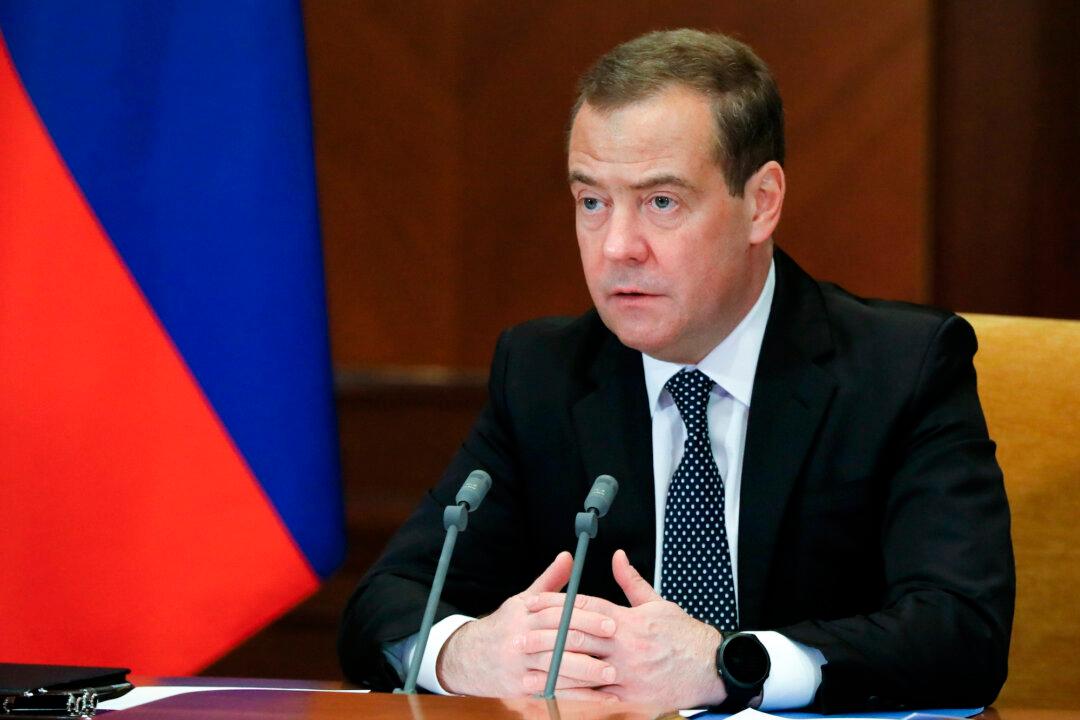Former Russian president Dmitry Medvedev, who is now the deputy head of the Russian Security Council that controls Moscow’s “special military operation” in Ukraine, has threatened a nuclear strike against Washington if the United States and its allies act to force Russia to give up its territorial gains in Ukraine.
Mr. Medvedev has threatened a nuclear strike on several occasions amid the war in Ukraine, most recently in the summer of 2023 when the much-vaunted Ukrainian counter-offensive loomed large—before it ultimately failed to take back territory that Russia annexed and now calls its own.





